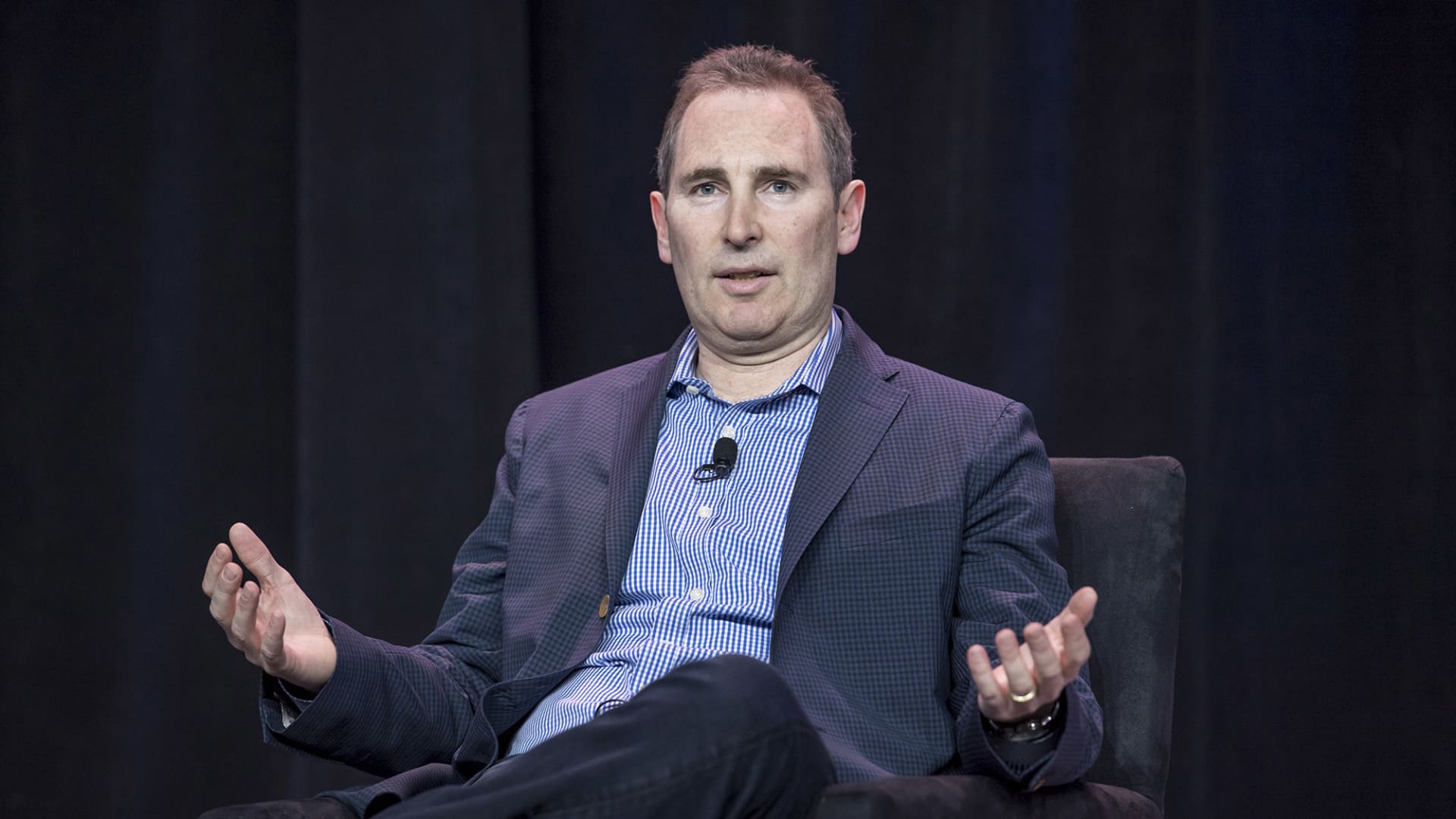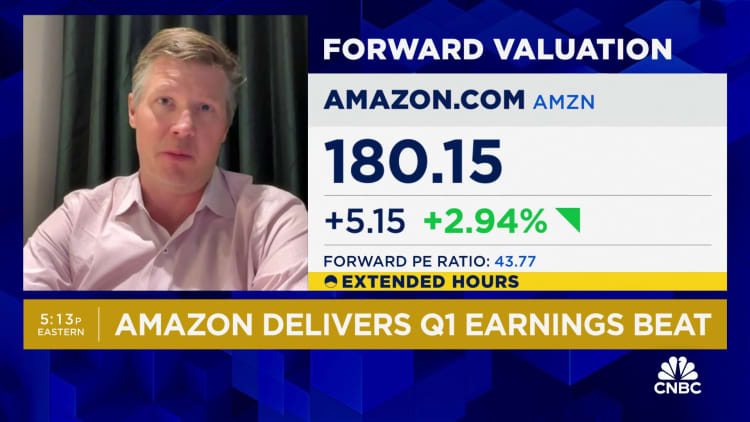

Andy Jassy, CEO of Amazon, speaks at the ceremonial ribbon cutting prior to tomorrow’s opening night for the NHL’s newest hockey franchise the Seattle Kraken at the Climate Pledge Arena on October 22, 2021, in Seattle.
Bruce Bennett | Getty Images Sport | Getty Images
For most of its 27 years as a public company, Amazon investors have been asked to sacrifice profit for growth. That’s no longer necessary.
In its first-quarter earnings report on Tuesday, Amazon’s operating margin reached double digits for the first time on record. The company’s margin climbed to 10.7% in the period, up from 7.8% in the fourth quarter and topping a previous high of 8.2% in the first quarter of 2021.
While overall revenue growth has been stuck in the low double digits for several quarters — and was mired in single digits for parts of 2021 and 2022 — profit-hungry investors have been satisfied by the combination of CEO Andy Jassy’s hefty cost cuts and stronger growth rates in higher-margin businesses like advertising and cloud computing.
Operating income more than tripled in the quarter to $15.3 billion, while net income also jumped more than 200% to $10.4 billion.
“It tells us that Andy Jassy’s emphasis of services for Amazon is working,” said Tom Forte, an analyst at Maxim Group, in an interview with CNBC’s “Closing Bell: Overtime” on Tuesday. “When you couple that with his very aggressive expense management you’re seeing these impressive margins.”
Amazon shares rose by about 1% in extended trading. The stock is up 15% for the year as of Tuesday’s close.
Revenue at Amazon Web Services increased 17% in the first quarter, a more rapid rate than Wall Street had expected. Almost two-thirds of operating income for all of Amazon came from AWS, which is now generating over $100 billion in annualized revenue. Growth at AWS sped up from 13% in the fourth quarter.
Digital advertising, a business that’s made Meta and Alphabet two of the most profitable companies on the planet, has become a booming business for Amazon as well. Ad revenue increased 24% to $11.8 billion in the first quarter from $9.5 billion a year earlier.
“Advertising is growing and AWS has been strong,” Amazon CFO Brian Olsavsky said on the earnings call on Tuesday, in discussing improvements in operating income. But there’s more. “A lot of that’s driven by cost controls and expanding revenue on the top line and lower cost structures throughout the company,” Olsavsky said.
He added that the retail business has also gotten more efficient, due to “regionalization efforts” that include retooling its logistics network so packages are shipped from facilities that are closer to shoppers.
Layoffs have been a big part of the story.
The company has eliminated more than 27,000 jobs since late 2022, with the cuts bleeding into 2024. During the first quarter, Amazon let go of hundreds of staffers in its health and AWS businesses.
Technology and infrastructure costs dropped slightly from a year earlier, and sales and marketing costs fell 5%. Amazon brought general and administrative expenses down by 10%.
Amazon expects a continued jump in profitability for the second quarter but at a more measured pace. Operating income will be $10 billion to $14 billion, up from $7.7 billion a year earlier. That’s still much higher growth than in revenue, which the company expects to increase by 7% to 11% to between $144 billion and $149 billion.
Even as Jassy continues to look for ways to trim costs, he’s endorsed big investments in generative artificial intelligence, particularly in the cloud business where the company has launched AI services.
Olsavsky said on the call he expects those efforts, along with investments in AWS infrastructure, will lead to a “meaningful” increase in Amazon’s capital expenditures for 2024 compared to last year. Capital spending by Amazon and its cloud peers Microsoft and Google has accelerated in recent quarters as the companies respond to demand for cloud and AI.
WATCH: All eyes were on AWS




